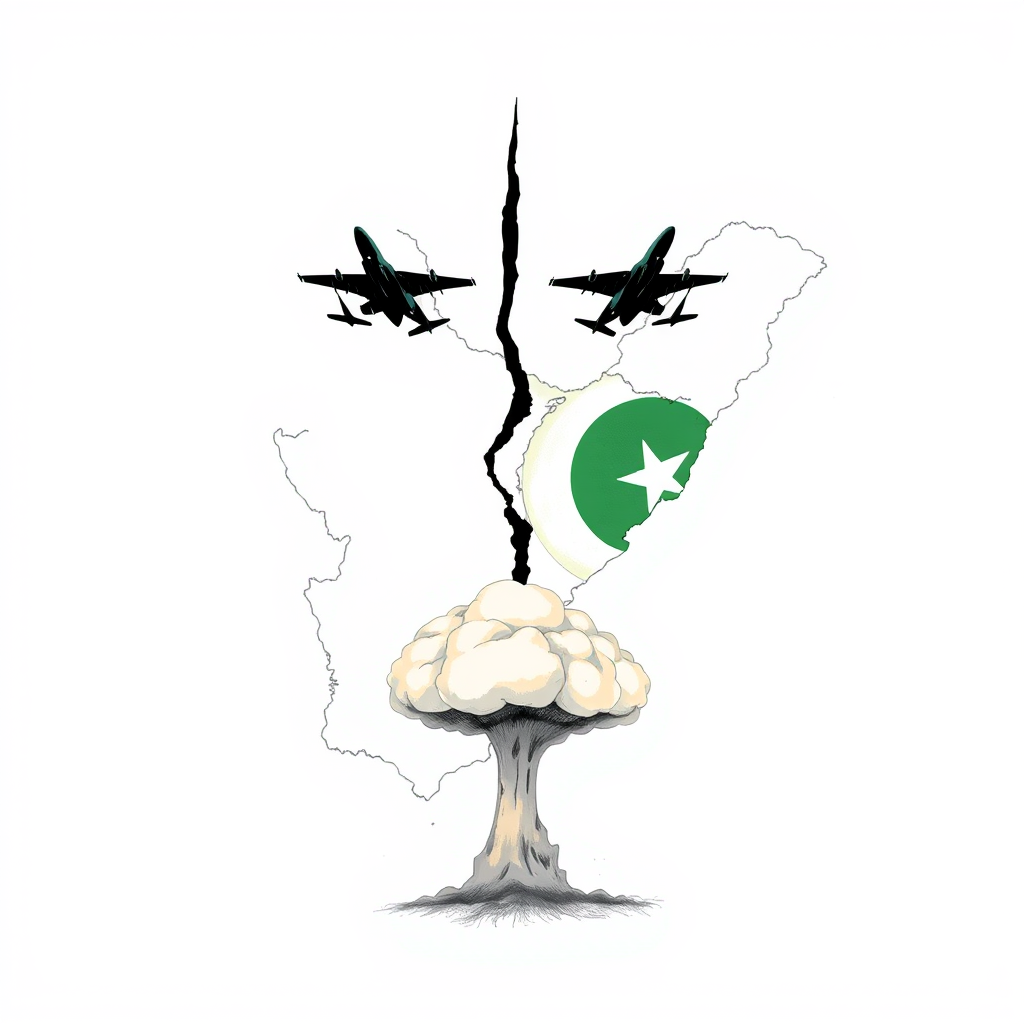India-Pakistan Crisis: Nuclear War Looms Closer?

Tensions between India and Pakistan are escalating rapidly following a recent terrorist attack in Indian-administered Kashmir, raising fears of a potential military conflict between the two nuclear-armed nations. The April 22nd attack in Pahalgam, which killed 26 people, has ignited a crisis rooted in the decades-long dispute over the Kashmir region – a territory both countries claim in its entirety.
The attack, claimed by the militant group Resistance Front – allegedly an offshoot of Lashkar-e-Taiba, the group responsible for the 2008 Mumbai attacks – targeted Hindu men, according to reports. India accuses Pakistan of supporting such groups, a claim Pakistan denies. This latest incident has prompted strong rhetoric from Indian Prime Minister Narendra Modi, who vowed to retaliate against what he termed “terror havens,” implicitly referencing Pakistan.
The situation on the ground is increasingly volatile. Sporadic exchanges of fire have occurred along the border, and both India and Pakistan have conducted military drills. Pakistan has closed its airspace to Indian airliners, and India has threatened to suspend a water-sharing treaty vital to Pakistani agriculture.
Adding to the urgency, Pakistani officials claim to have intelligence suggesting India is planning military action within the next 24-36 hours – a claim India has not publicly addressed. This reciprocal escalation is deeply concerning, particularly given the history of conflict over Kashmir. In 2019, following a suicide bombing in Kashmir that killed 40 Indian police officers, India launched airstrikes on Pakistani territory, leading to an aerial battle and the downing of an Indian fighter jet. Subsequently, India revoked Kashmir’s semiautonomous status, a move that further inflamed tensions.
The core of the issue remains the unresolved status of Kashmir. India controls a significant portion of the region and has been attempting to integrate it more fully, while Pakistan continues to support Kashmiri separatists, according to widespread reports. The potential for miscalculation is immense.
Experts like Sumit Ganguly of the Hoover Institution suggest India may feel compelled to take a dramatic response to demonstrate resolve. A limited incursion into Pakistan-administered Kashmir is considered a more likely scenario than a full-scale invasion of Pakistan itself, but even a limited conflict carries significant risks.
The specter of nuclear war looms large. Both countries possess approximately 170 nuclear warheads, and even a “limited” exchange could result in catastrophic loss of life. While India maintains a “no-first use” policy regarding nuclear weapons, Pakistan does not, stating it would only consider their use if its existence is directly threatened.
Past crises have often been defused through US diplomacy, but current indications suggest limited involvement from the Trump administration. Secretary of State Marco Rubio is reportedly planning to speak with leaders from both countries, but President Trump’s initial comments – referencing a 1,500-year history of border tensions (despite the countries only existing for 77 years) – offer little reassurance.
This time, it appears India and Pakistan may be largely left to navigate this dangerous situation on their own. The lack of robust international mediation is deeply troubling, and the potential for a catastrophic escalation remains very real. The situation demands immediate and sustained diplomatic efforts to de-escalate tensions and prevent a conflict that could have devastating consequences for the region and the world.